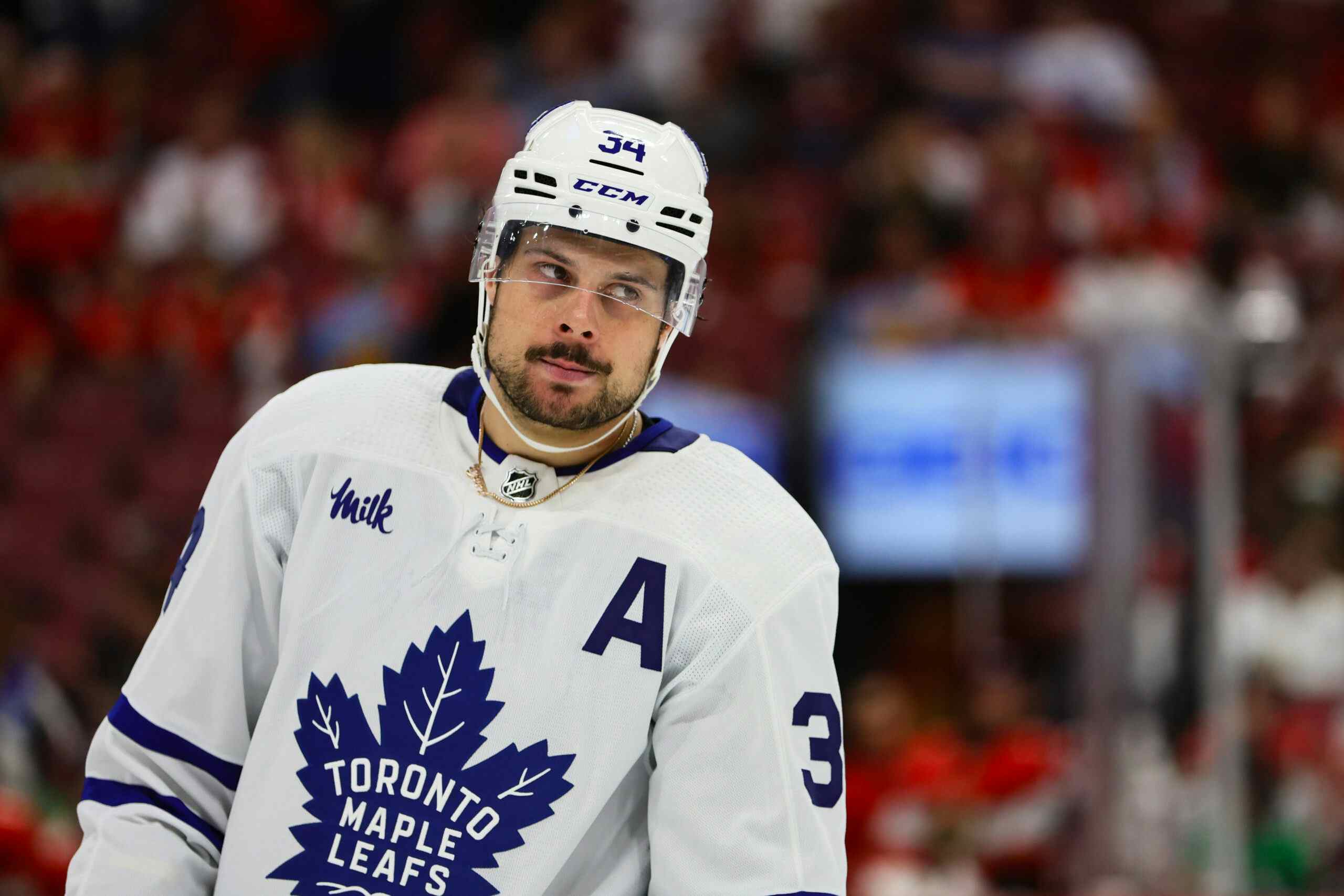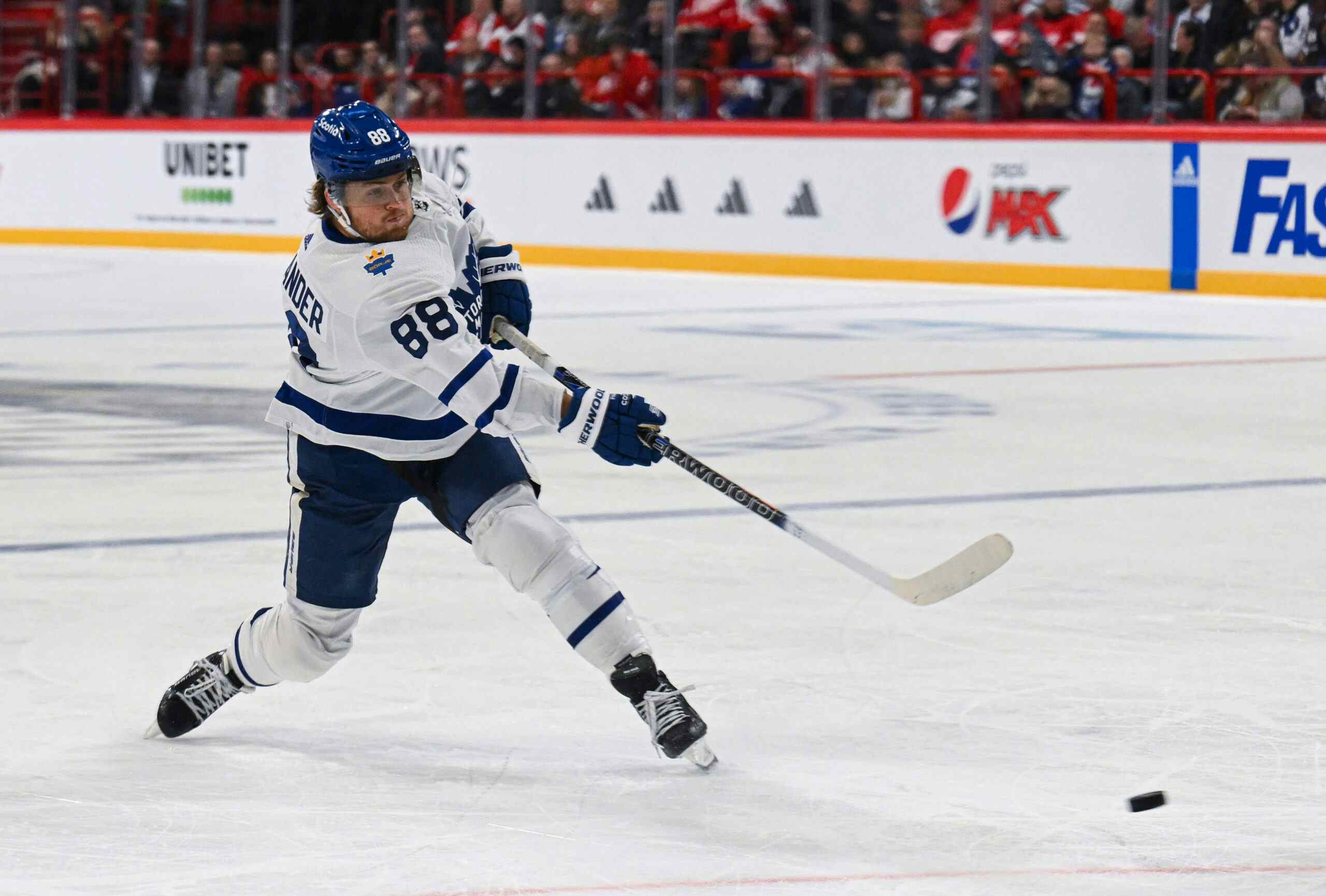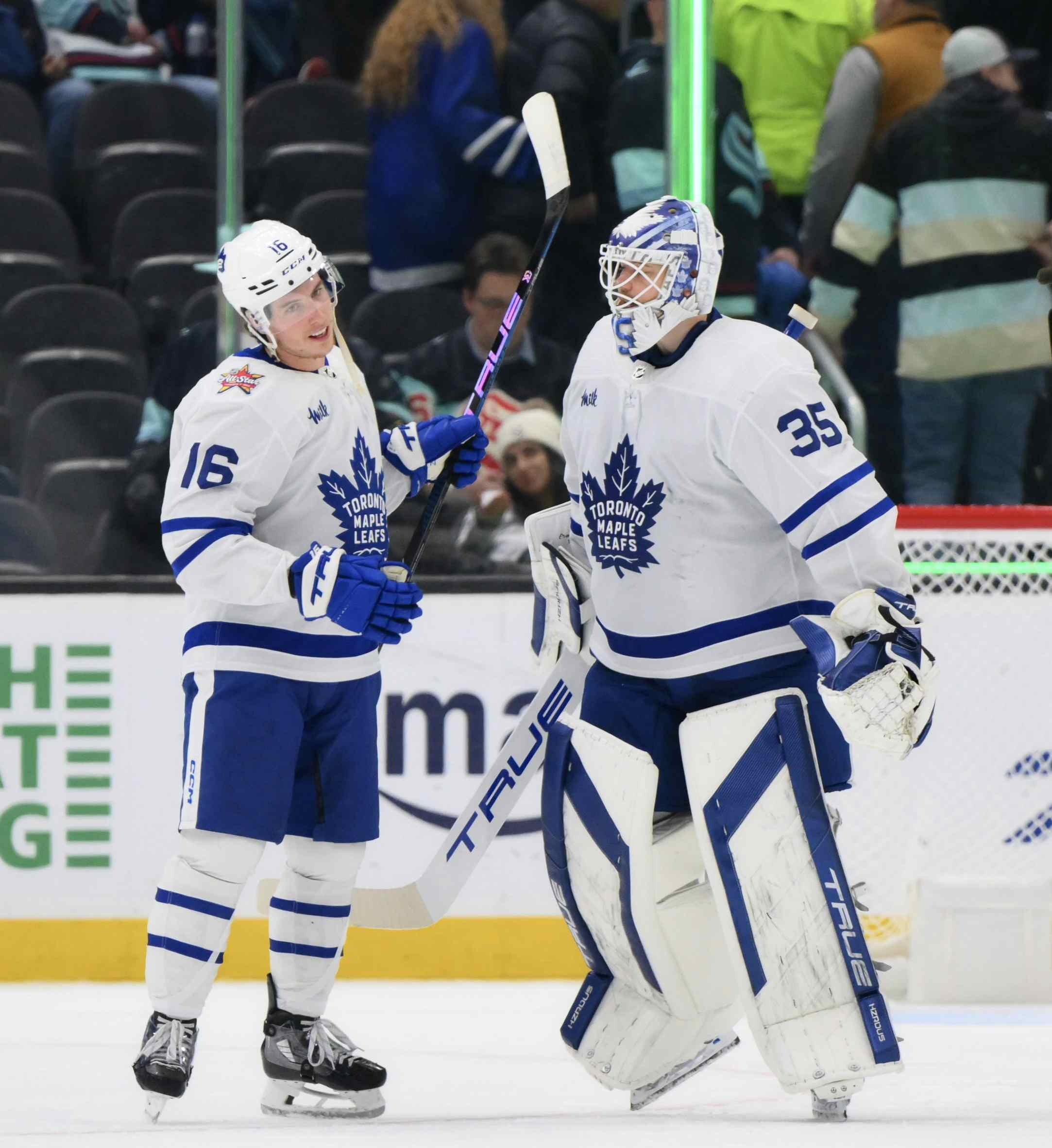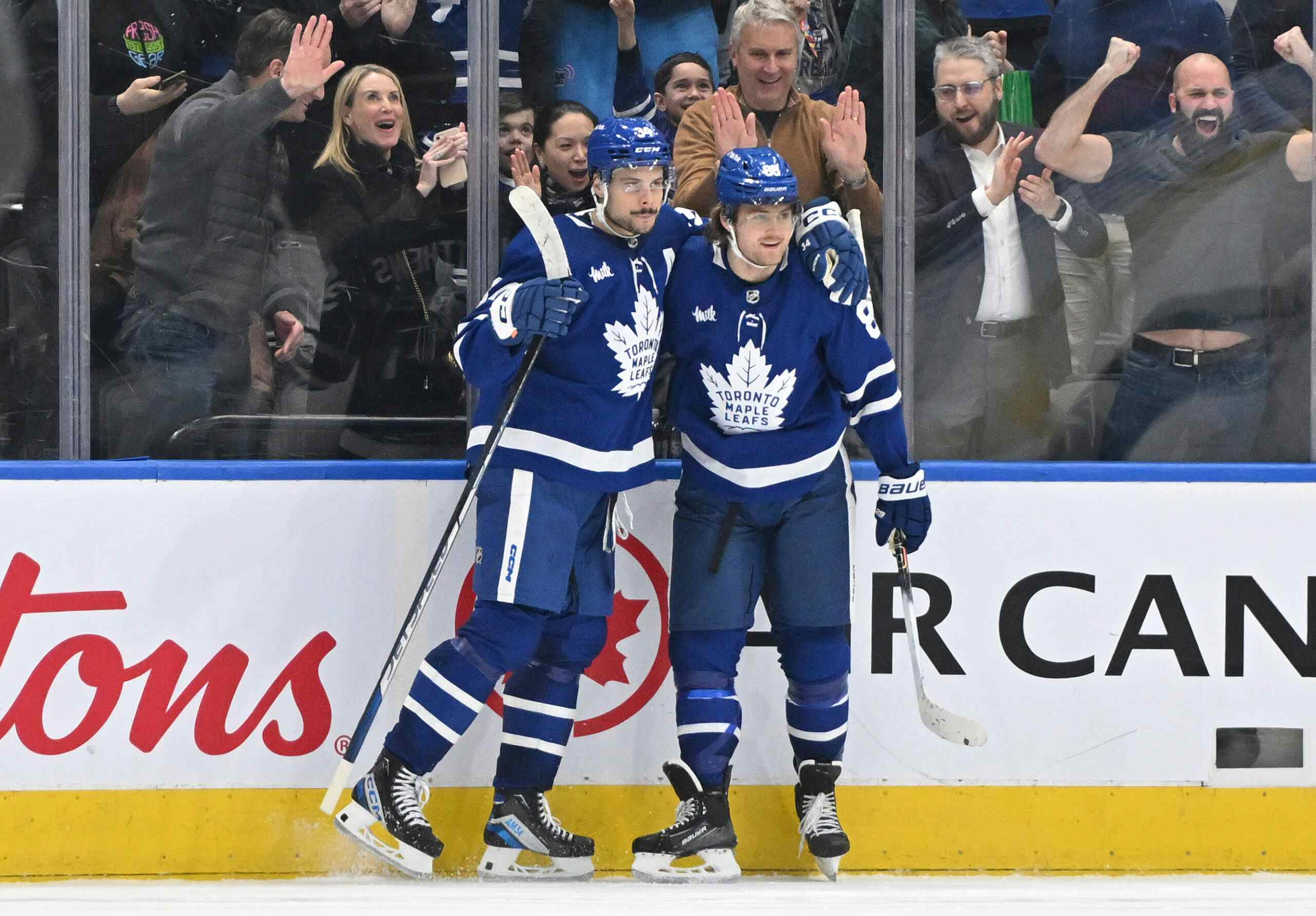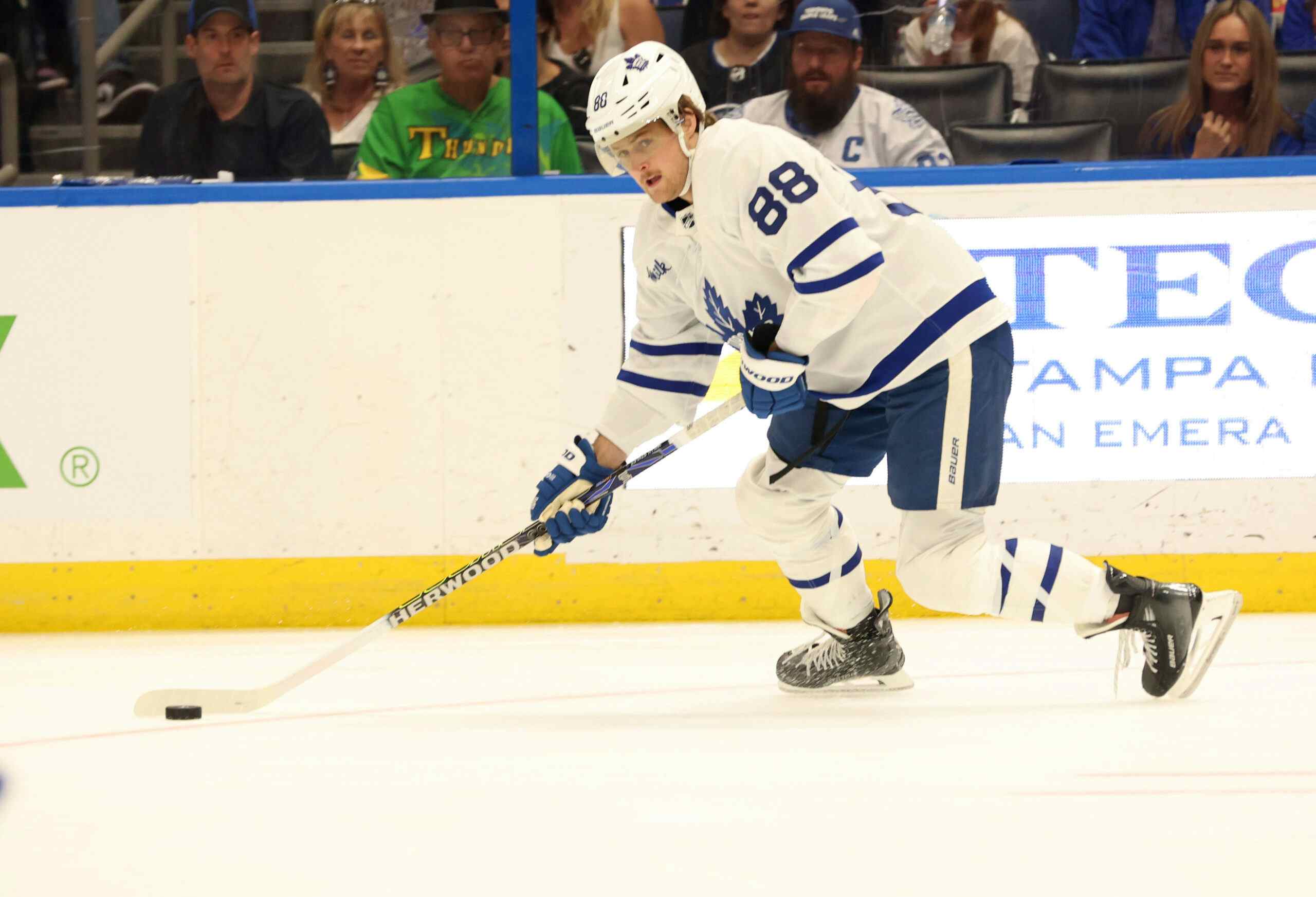Know a Writer: James Mirtle
By Steve Dangle
10 years ago
Media has never been more accessible. Once an article, video, or sound bite goes online, it is immediately available for the entire world to consume, debate, and scrutinize. The hockey world is no different.
Writers and reporters make a living off of interviewing hockey players and executives. I wanted to switch things up, and interview the reporters instead.
I asked around, and the first volunteer was James Mirtle of the Globe & Mail. Here’s my interview with a man who covers the Leafs’ beat, and is one of the tallest sports writers going.
Name: James D. Mirtle
Title/Company: Sportswriter, The Globe and Mail
Shoots: Right
Title/Company: Sportswriter, The Globe and Mail
Shoots: Right
What do you do?
I spend about 60 per cent of my year covering the Leafs, and I attend most home games and 10-15 on the road. I also chip in with stories about the NHL as a whole, including on the business side of the game and anything related to statistics. Sometimes I even cover other sports, like curling and track and field, my two other favourites to play when I was growing up.
How did you begin writing about hockey?
This won’t surprise anyone, but I was writing down numbers and drawing hockey-related charts at a pretty young age. My Dad is a draftsman so we always had a million weird rulers and protractors around and I used them to make pie charts of things like "Teams with the most Stanley Cups" with them when I was probably 10. I think he thought I was nuts.
I didn’t start formally writing about hockey until my last year of university in Kamloops, when I realized four years of English literature might not be the best path to that job thing we were supposed to be studying for. I started writing (really bad) NHL related columns in the school paper (The Omega) and doing small scouting reports on draft eligible WHL players for McKeen’s Hockey.
I liked it well enough that when my choices for grad school were more literature (blech), law school (blech) or journalism, I choose Ryerson journalism and moved to Toronto.
What is the thing you’ve written that you’re most proud of?
I don’t really have a great answer to that. I think some of the long-form stuff I did on my old blog and then From The Rink, that was probably read by 10,000 people max, was pretty unique and interesting for when it was done. The blogosphere was pretty young and fun to be a part of at that point.
It’s probably not what you’re looking for, but I think one of the best things I ever wrote was a personal essay about my mother’s two battles with cancer for the Ryerson paper. Your best work usually has the most of you in it.
Who is the Leafs’ best quote and why?
They’ve actually lost a few of them, with Komarov, MacArthur, Scrivens and Grabovski leaving. Even Komisarek, too, actually.
The best quotes left are Joffrey Lupul and Nazem Kadri. They’re both outgoing, very comfortable in their own skin and just really honest. If it’s a tough question, but it’s a fair question, they don’t get offended or take it personally. Both put in so much time with media, too, given they’re good quotes and a lot of guys in the room don’t talk much.
What was the most underrated story of the Leafs’ season? Why?
The most underrated story was just how incredibly fortunate they were in the shortened season. Pretty much everything went right for Randy Carlyle in his first season, from Reimer posting a huge save percentage (after being the team’s biggest question mark in training camp), to Kadri putting up huge point totals (after not knowing if he’d make the team), to the majority of the roster staying healthy outside of Lupul, to the emergence of Franson and Van Riemsdyk. A lot of what they touched turned to gold, which may have been deserved after the Raycroft/Toskala years sunk some teams that could have been a lot better than they were.
The other thing that was underrated all year was Grabovski’s shift into that defensive role and the dive his numbers took, but that’s been beaten to death in light of his buyout. But it was a story I tried to cover right from the beginning as it had potentially disastrous consequences that I think were eventually realized.
What was the most overblown story of the Leafs season? Why?
There were a lot. The "tough" Leafs beating teams out of the rink was one kind of silly one. All the time spent ripping Kessel for the early goal scoring slump that came even as he was producing huge shot and chance totals every night.
And there was an awful lot of good press for Carlyle’s system when this was a team clearly spending a lot of time in its own end, especially in the final month or so of the season.
It’s 2013. The line between the "mainstream media" and "new media" seems to be getting blurrier. You seem to be an interesting blend of both. What do those two terms mean to you now?
A lot less than they used to. I mean, what is someone like Greg Wyshynski, media or new media? He’s both. More and more guys are. I always sort of was because I was writing my blog during the day and then working on the desk at The Globe at night. That’s going to be the model more and more for hockey coverage, too. How many young guys (and I use that term liberally) are there even writing on the NHL for a mainstream outlet right now?
The so-called mainstream media is playing catch up a little bit to produce and compete with new media, but they have some additional resources to help make the transition. It was really interesting working with SB Nation for a while back in 2008-09, though, and seeing what they and The Globe were doing at the same time. I think the real answer is both sides are still trying to figure the whole thing out.
You’re one of the bigger or more influential names out there in terms of guys who use "advanced stats." Why does there seem to be such a resistance to it?
I don’t think it’s that complicated. a) A lot of people don’t like math, in general. b) A lot of people don’t want to invest the time it’ll take to understand and use these types of new ideas to analyze the game, whether that’s out of fear or whatever. c) People are just generally skeptical of something different, and frankly, I don’t blame them. It would be nice to have a little bit more openmindedness though.
Anyone who’s read my stuff for a long time knows I was skeptical of some of the advanced stats for quite a while, and even now, there are a lot of them I disregard entirely. Here’s one example from the past, though: My top defensive defencemen and forwards lists for a long, long time relied on goals against ratios, not possession, to determine the best defensive players.
I wouldn’t do it that way anymore.
It took a period of a couple years of reading and talking about and learning about some of this analysis to really trust it and match it up with what I was seeing on the ice. I credit Gabe Desjardins and Tyler Dellow and others with helping in that regard: no question was too dumb in the beginning.
One of the toughest things with possession stats, in particular, is that you have to know their limitations and be able to put them in context in order to use them properly, and that appears to be just too much of a leap of faith for the average hockey fan right now. It’s too much of a leap for many front offices, too.
But I’ll say this: The truly bright numbers guys, the ones who understand how to use these things, are making projections that are infinitely better than a lot of what’s available. They’re just right more often, and as someone covering the game for a living, I think wrapping your head around the ‘why’ of that is important.
And the good thing is there are a lot of people like Desjardins and Dellow and Eric Tulsky, etc., who are willing to pick up the phone and talk about this stuff if you’re willing to ask the questions and be, as I said, a little openminded.
What is the biggest, or what are some of the biggest, issues facing sports media today?
Print media is in trouble. No question. The sports departments are shrinking, and we’re losing voices from those outlets fairly rapidly, in many cases to television or radio. Some will say that’s no big loss, but you have to wonder what the landscape looks like if people aren’t able to make a living as writers. I read the bloggers as much as anyone and respect what they do – a lot of the best stuff is now coming out of there, if you know where to look – but it’s great also to have the Elliotte Friedmans around to offer context and perspective of what’s actually happening at the rink and with the decision makers.
It’d be nice too if the hobbyists who do a great job could start paying their rent.
There’s no shortage of people covering Canadian NHL teams and there probably never will be – the TV networks remain strong, even if they’re often not investing heavily in writing and analysis online – but hopefully that type of intelligent content remains valued by enough people in the sports media landscape even if sound bites and sources are what sells.
The biggest issue may be that we could be doing better work than we are, but there’s this melding of mainstream and new media going on that probably affects the product right now. Some places and people aren’t adapting well but then again some others are. Hopefully the transition eventually leads to better coverage winning out in the end.
What advice would you give to people who want to cover sports for a living?
It can take a long time to break into exactly what you want to do, but then again, that’s the case in lots of industries right now. In the beginning, be willing to work any job and any hours and impress the people you’re working for. Become well versed in new and social media and don’t be afraid to be different. Don’t get discouraged if it takes years to get where you want to go – that’s usually the case for everyone. Know what you’re covering inside and out, try to always get things right and, in the end, if you do good work, you’ll get noticed and rewarded.
Where should I point people for your stuff?
Recent articles from Steve Dangle

